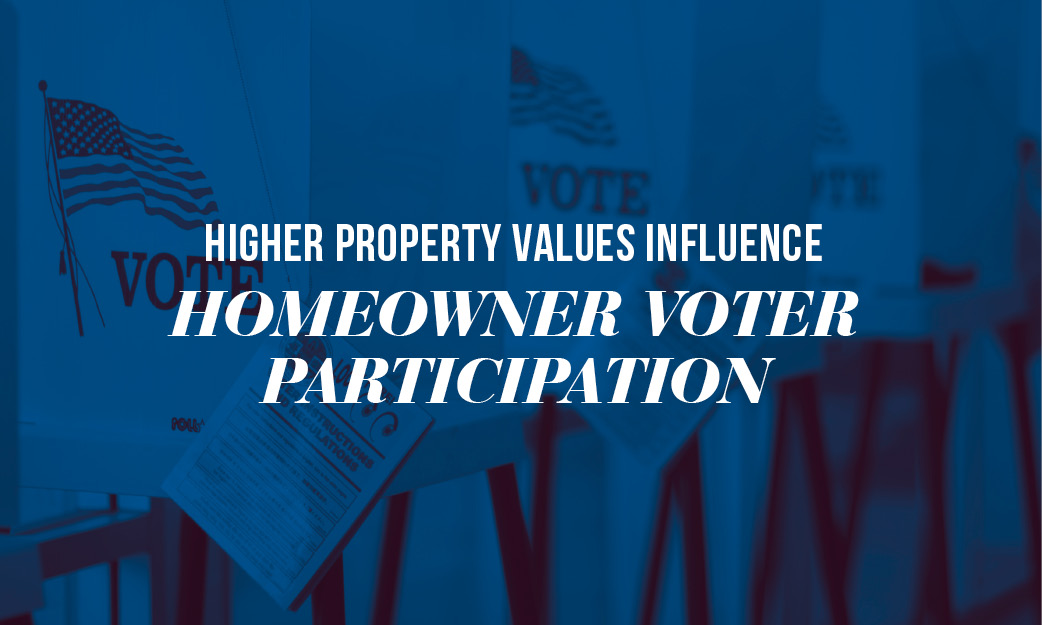
A recent study from two members of Stanford University’s political science department finds a strong positive relationship between voter turnout rates and property values among homeowners. Along with a growing body of research around how homeowners vote, this could pose more risks and challenges to the U.S. housing market’s long-term health than many would assume.
The study, authored by Stanford professor Andrew B. Hall and Ph.D. candidate Jesse Yoder, found that the simple distinction of being a homeowner made a person 4 percent more likely to vote in local elections than average. While that seems insignificant, it’s a more pronounced effect than many large-scale get-out-the-vote efforts ultimately have. Hall and Yoder also found the effect could be even greater depending on the value of a voter’s home. The more valuable a property is, the more likely its owners are to show up to the polls.
Another voting behavior that most homeowners share is much more complex, and could prove detrimental to the broader interests of the real estate industry. As economics and urban policy reporter Emily Badger explained in a New York Times article, the Stanford study’s findings align with past research that shows homeowners who vote tend to be overly protective of their property values. On an individual level, this makes sense, but it has far-reaching implications — making it harder to build affordable housing, stifling local business growth and even contributing to housing discrimination.
The political effects of homeownership are so strong they can invalidate many of the preconceived notions around partisan identity we take for granted. For example, Badger explained, other studies have shown that homeowners who espouse nominally liberal values on issues related to tax policy or welfare spending end up voting more like conservatives when it comes to local zoning laws.
This phenomenon manifests itself in debates over affordable housing construction in many large U.S. cities — the kind of dense development that could help reduce home prices and rents for a broad segment of people often meets fierce opposition from a minority of homeowners who occupy both ends of the political spectrum.
Recently, the Department of Housing and Urban Development Secretary Ben Carson alluded to this problem in rolling out a new directive aimed at combatting housing affordability and segregation. In an August interview with The Wall Street Journal, Carson said his administration is looking for ways to enact laws at the federal level that would overrule local zoning laws that prohibit homebuilding activity and lock out lower-income buyers.
Again, this proposal from an official who identifies as a conservative runs contrary to that political party’s traditional mistrust of an overbearing federal bureaucracy. It’s yet another example of how homeownership is politically polarizing in a much different way than we have come to expect, and demonstrates the delicate nature of real estate industry’s political advocacy efforts. Housing affordability is considered a key factor driving home sales down in many markets, but it could continue without a shift in how voters address the problem.